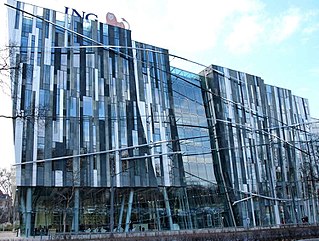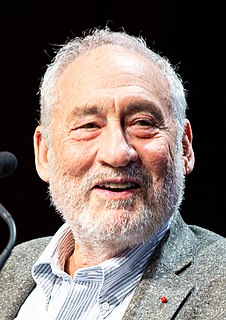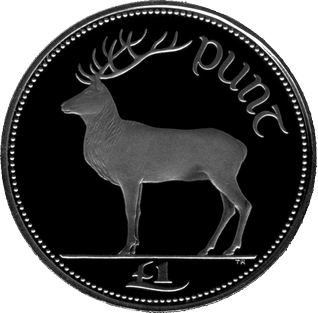
The economy of Denmark is a modern mixed economy with comfortable living standards, a high level of government services and transfers, and a high dependence on foreign trade. The economy is dominated by the service sector with 80% of all jobs, whereas about 11% of all employees work in manufacturing and 2% in agriculture. The nominal gross national income per capita was the seventh-highest in the world at $58,439 in 2020. Correcting for purchasing power, per capita income was Int$57,781 or 10th-highest globally. The income distribution is relatively equal but inequality has somewhat increased during the last decades. This increase was attributed to both a larger spread in gross incomes and various economic policy measures. In 2017, Denmark had the seventh-lowest Gini coefficient of the then 28 European Union countries. With 5,892,871 inhabitants, Denmark has the 36th largest national economy in the world measured by nominal gross domestic product (GDP), and the 51st largest in the world measured by purchasing power parity (PPP).

The economy of Hungary is a high-income mixed economy, ranked as the 9th most complex economy according to the Economic Complexity Index. Hungary is a member of the Organisation for Economic Co-operation and Development (OECD) with a very high human development index and a skilled labour force, with the 13th lowest income inequality in the world. The Hungarian economy is the 54th-largest economy in the world with $265.037 billion annual output, and ranks 41st in the world in terms of GDP per capita measured by purchasing power parity. Hungary has an export-oriented market economy with a heavy emphasis on foreign trade; thus the country is the 35th largest export economy in the world. The country had more than $100 billion of exports in 2015, with a high trade surplus of $9.003 billion, of which 79% went to the European Union (EU) and 21% was extra-EU trade. Hungary's productive capacity is more than 80% privately owned, with 39.1% overall taxation, which funds the country's welfare economy. On the expenditure side, household consumption is the main component of GDP and accounts for 50% of its total, followed by gross fixed capital formation with 22% and government expenditure with 20%.

The economy of Malta is a highly industrialised, service-based economy. It is classified as an advanced economy by the International Monetary Fund and is considered a high-income country by the World Bank and an innovation-driven economy by the World Economic Forum. It is a member of the European Union and of the eurozone, having formally adopted the euro on 1 January 2008.

James McGill Buchanan Jr. was an American economist known for his work on public choice theory originally outlined in his most famous work co-authored with Gordon Tullock in 1962, The Calculus of Consent, then developed over decades for which he received the Nobel Memorial Prize in Economic Sciences in 1986. Buchanan's work initiated research on how politicians' and bureaucrats' self-interest, utility maximization, and other non-wealth-maximizing considerations affect their decision-making. He was a member of the Board of Advisors of The Independent Institute as well as of the Institute of Economic Affairs, a member of the Mont Pelerin Society (MPS) and MPS president from 1984 to 1986, a Distinguished Senior Fellow of the Cato Institute, and professor at George Mason University.

The economy of Norway is a highly developed mixed economy with state-ownership in strategic areas. Although sensitive to global business cycles, the economy of Norway has shown robust growth since the start of the industrial era. The country has a very high standard of living compared with other European countries, and a strongly integrated welfare system. Norway's modern manufacturing and welfare system rely on a financial reserve produced by exploitation of natural resources, particularly North Sea oil.

Joseph Eugene Stiglitz is an American New Keynesian economist, a public policy analyst, and a full professor at Columbia University. He is a recipient of the Nobel Memorial Prize in Economic Sciences (2001) and the John Bates Clark Medal (1979). He is a former senior vice president and chief economist of the World Bank. He is also a former member and chairman of the Council of Economic Advisers. He is known for his support of Georgist public finance theory and for his critical view of the management of globalization, of laissez-faire economists, and of international institutions such as the International Monetary Fund and the World Bank.

Charles McCreevy is a former Irish Fianna Fáil politician who served as European Commissioner for Internal Market and Services from 2004 to 2010, Minister for Finance from 1997 to 2004, Minister for Tourism and Trade from 1993 to 1994 and Minister for Social Welfare from 1992 to 1993. He served as a Teachta Dála (TD) for the Kildare constituency from 1977 to 2004.

The Economic Policy Institute (EPI) is a 501(c)(3) non-profit American, left-leaning think tank based in Washington, D.C., that carries out economic research and analyzes the economic impact of policies and proposals. Affiliated with the labor movement the EPI is usually described as presenting a left-leaning and pro-union viewpoint on public policy issues. Since 2021, the EPI has been led by economist Heidi Shierholz, a former Chief Economist of the Department of Labor

The economic history of the Republic of Ireland effectively began in 1922, when the then Irish Free State won independence from the United Kingdom. The state was plagued by poverty and emigration until the 1960s when an upturn led to the reversal of long term population decline. However, global and domestic factors combined in the 70s and 80s to return the country to poor economic performance and emigration. The 1990s, however saw the beginning of unprecedented economic success, in a phenomenon known as the "Celtic Tiger", which continued until the 2008 global financial crisis, specifically the post-2008 Irish economic downturn. It also led to Ireland becoming the most indebted state in the European Union. As of 2015, the Republic has returned to growth, and was the fastest growing economy for that year. Since August 2017, Irish unemployment has been at a 9-year low of 6.1%. [outdated]

Politics in Wales forms a distinctive polity in the wider politics of the United Kingdom, with Wales as one of the four constituent countries of the United Kingdom (UK).
Policy Exchange is a right-wing, British conservative think tank based in London. In 2007 it was described in The Daily Telegraph as "the largest, but also the most influential think tank on the right". The Washington Post said Policy Exchange's reports "often inform government policy in Britain." and Iain Dale described it as the ‘pre-eminent think tank in the Westminster village”, in ConservativeHome. Policy Exchange is a registered charity.

Tax policy includes the guidelines developed by a government regarding how taxes are imposed, in what amounts, and on whom. It has both microeconomic and macroeconomic aspects. The macroeconomic aspect concerns the overall quantity of taxes to collect, which can inversely affect the level of economic activity; this is one component of fiscal policy. The microeconomic aspects concern issues of fairness and allocative efficiency. A country’s tax framework is a key policy instrument that is intended to positively influence the country's economy.

Policy Network is an international progressive think tank based in London. The President of Policy Network is former UK First Secretary of State and EU Trade Commissioner Lord Mandelson; Lord Liddle is Chairperson.

Intergenerational equity in economic, psychological, and sociological contexts, is the idea of fairness or justice between generations. The concept can be applied to fairness in dynamics between children, youth, adults, and seniors. It can also be applied to fairness between generations currently living and future generations.

The political positions of Ron Paul (R-TX), United States presidential candidate in 1988, 2008, and 2012, are generally described as libertarian, but have also been labeled conservative. Paul's nickname "Dr. No" reflects both his medical degree and his assertion that he will "never vote for legislation unless the proposed measure is expressly authorized by the Constitution". This position has frequently resulted in Paul casting the sole "no" vote against proposed legislation. In one 2007 speech, he said he believes that "the proper role for government in America is to provide national defense, a court system for civil disputes, a criminal justice system for acts of force and fraud, and little else."

The Constitution of the United Kingdom or British constitution comprises the written and unwritten arrangements that establish the United Kingdom of Great Britain and Northern Ireland as a political body. Unlike in most countries, no attempt has been made to codify such arrangements into a single document, thus it is known as an uncodified constitution. This enables the constitution to be easily changed as no provisions are formally entrenched; the Supreme Court of the United Kingdom recognises that there are constitutional principles, including parliamentary sovereignty, the rule of law, democracy, and upholding international law.

A carbon fee and dividend or climate income is a system to reduce greenhouse gas emissions and address climate change. The system imposes a carbon tax on the sale of fossil fuels, and then distributes the revenue of this tax over the entire population as a monthly income or regular payment.

The External relations of the Bailiwick of Jersey are conducted by the External Relations department of the Government of Jersey. Jersey is not an independent state; it is a British Crown dependency, so internationally the United Kingdom is responsible for protecting the island and for consulting Jersey on international trade agreements but it is not a British territory.
Issues in the United Kingdom European Union membership referendum, 2016 are the economic, human and political issues that were discussed during the campaign about the withdrawal of the United Kingdom from the European Union, during the period leading up to the Brexit referendum of 23 June 2016. [Issues that have arisen since then are outside the scope of this article].

A British Confederation or a Confederal UK has been proposed as a concept of constitutional reform of the United Kingdom, in which the countries of the United Kingdom; England, Scotland, Wales, as well as Northern Ireland become separate sovereign states that pool certain key resources within a confederal system with a central authority. Under the system, the central authority exists with the consensus of the constituent countries, which also maintain a right to succession, if they wish.

















